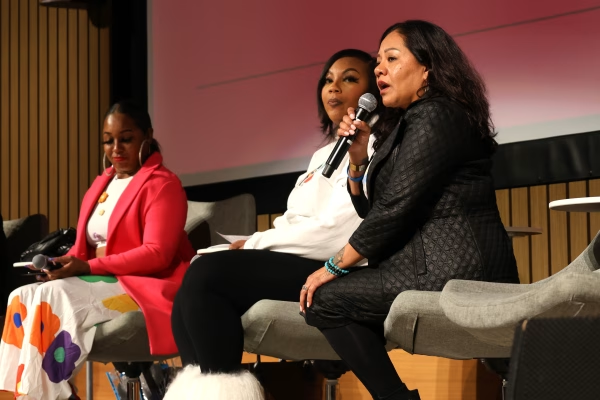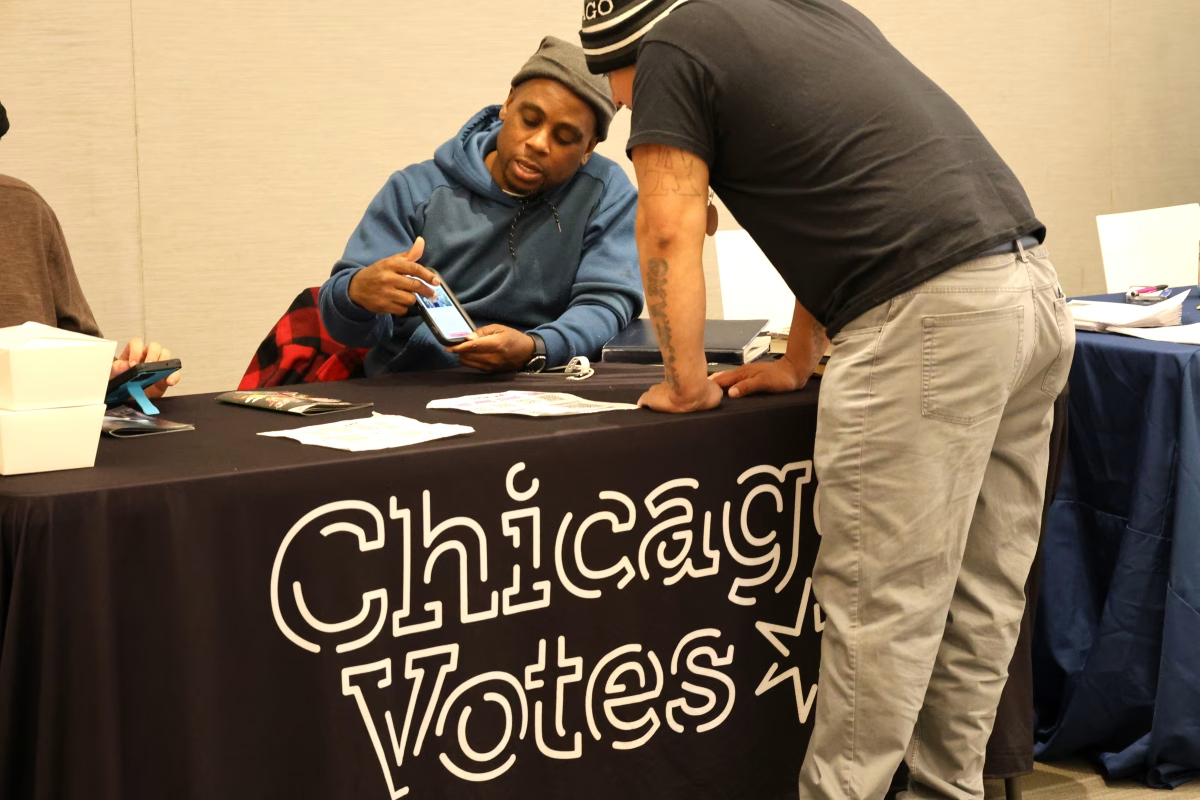While often overlooked in voting efforts, members of the incarcerated community are looking to rehabilitate and engage with their civic duties amid an eventful election season.
Stories were traded and connections were made at the Transforming Reentry Services (TRS) ‘Returning Citizens’ summit on Saturday, Oct. 26 at Malcolm X College. Dozens came in search of community and a better future.
Located on the West Side of Chicago, Malcolm X College is a state school predominantly attended by Hispanic and Black students. The diversity of the school’s student body was echoed by the many diverse faces at TRS’ summit.
TRS, which was founded in 1982, operates in Chicago’s South and West sides and provides formerly incarcerated individuals with the resources they need to succeed in reentry.
Lionel Muhammad, TRS communication specialist and minister, believes this is the beginning of a big step forward.
“This is the first summit we’ve hosted,” said Muhammad. “And we’re already in talks with Alderwoman Taylor about making it a full-blown conference next year.”

Ald. Jeanette B. Taylor (20th) attended the event and spoke briefly to her constituents. The 20th Ward covers the neighborhoods of Englewood, Fuller Park, Hyde Park and Greater Grand Crossing.
“The narrative surrounding ex-offenders often paints a weak picture focused on past mistakes and societal stigma,” Taylor said. “It’s critical to acknowledge the transformative journeys many individuals undertake after incarceration.”
The summit offered useful services like resume workshops, information on obtaining birth certificates and discussions about mental health. The service that stuck out as particularly timely was the information on voter registration provided by Chicago Votes.
Chicago Votes is a nonpartisan, nonprofit organization that seeks to educate young Chicagoans about the power of their vote and advocate for more accessible voting.
Toussaint Daniels, who attended the summit as a liaison for Chicago Votes, believes deeply in the power of voting.
“When I’m engaging with a would-be voter, I ask them if they have the right to vote,” Daniels said. “And if they say yes, I tell them I wish I had that right.”
After 25 years in prison, Daniels was released seven months ago on work release, after being an accessory to murder at 18. He is trying to fight the stigma that comes with his past.
“I live in two worlds,” Daniels said. “There’s the one I built inside those institutions by becoming learned, and there’s the outside world where it’s hard for people to see me as the man I’ve become.”
Daniels became involved with Chicago Votes after participating in a prison civics program. With that in mind, Daniels wants to make sure people know how important their rights are.
“I don’t think people in the community think their votes matter,” Daniels said. “But that’s because they don’t understand the system, and the work we do is trying to change that.”
Illinois is one of 23 states that guarantee inmates the right to vote once they’re out of prison, but unique laws have aimed to expand voter access in jail, and even allow detainees awaiting trial to cast their ballots. These discrepancies aren’t understood by everyone. The TRS summit presents an opportunity to educate this untapped voter base.
DePaul SGA member Gerald Zink also attended the summit as a Chicago Votes volunteer.
“The right to vote is important for the survival of a just government,” Zink said. “A government with no input from the people is a useless government.”
Daniels sees value in these summits as a venue where people can be themselves.
“Being around them, I do feel more comfortable because I know there is no weighted expectation,” Daniels said. “They know Toussaint to be Toussaint.”
Celia Colón, founder of Giving Others Dreams, an organization that provides similar services to TRS but with a focus on women impacted by the system, also spoke at the summit on a panel of women. Like Daniels, she believes in the value of community within the system.

“Even though this state is huge, for those of us who have devoted our lives to this work, we all know each other,” Colón says. “If you do great work out here, everybody on the inside knows.”
Colón also spoke to the importance of women’s voices being platformed in this space.
“We all come from women, the world is safer because of women, women are the first teachers of the next generation, but women aren’t protected,” Colón said.
Colón sees voting as one of many steps that can be taken to right the ship, especially among the incarcerated community.
“I think incarcerated people are one of the largest voter blocks that goes overlooked,” Colón says. “People in the system are so often members of marginalized groups who fought for the right to vote. It seems like a missed opportunity for us not to take it.


